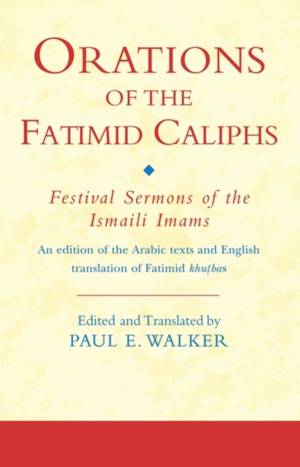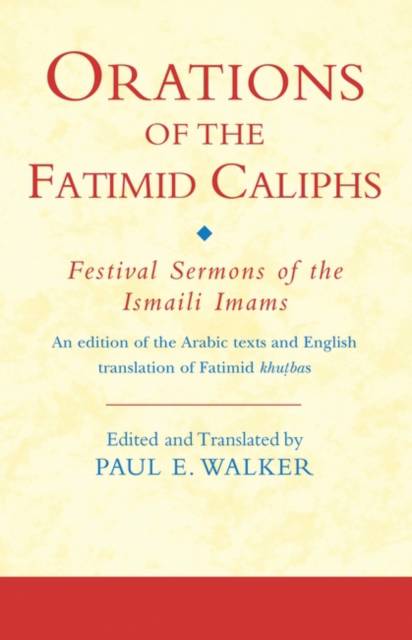
- Afhalen na 1 uur in een winkel met voorraad
- Gratis thuislevering in België vanaf € 30
- Ruim aanbod met 7 miljoen producten
- Afhalen na 1 uur in een winkel met voorraad
- Gratis thuislevering in België vanaf € 30
- Ruim aanbod met 7 miljoen producten
Zoeken
€ 103,45
+ 206 punten
Omschrijving
The Fatimid empire was a highly sophisticated and cosmopolitan regime that flourished from the beginning of the 10th to the end of the 12th century. Under the enlightened rule of the Fatimid Caliphs, Cairo was founded as the nucleus of an imperium that extended from Arabia in the east to present-day Morocco in the west. Dynamic rulers like the the fourth caliph al-Mu'izz (who conquered Egypt and founded his new capital there) were remarkable not only for their extensive conquests but also for combining secular with religious legitimacy. As living imams of the Ismaili branch of Shi'ism, they exercised authority over both spiritual and secular domains. The sacred dimension of their mandate was manifested most powerfully twice a year, when the imam-Caliphs personally delivered sermons, or khutbas, to their subjects, to co-incide with the great feasts and festivals of fast-breaking and sacrifice.While few of these sermons have survived, those that have endured vividly evoke both of the atmosphere of the occasion and the words uttered on it.
Paul E Walker here provides unique access to these orations by presenting the Arabic original and a complete English translation of all the khutbas now extant. He also offers a history of the festival sermons and explores their key themes and rhetorical strategies.
Paul E Walker here provides unique access to these orations by presenting the Arabic original and a complete English translation of all the khutbas now extant. He also offers a history of the festival sermons and explores their key themes and rhetorical strategies.
Specificaties
Betrokkenen
- Auteur(s):
- Uitgeverij:
Inhoud
- Aantal bladzijden:
- 240
- Taal:
- Engels
- Reeks:
Eigenschappen
- Productcode (EAN):
- 9781845119911
- Verschijningsdatum:
- 1/03/2009
- Uitvoering:
- Hardcover
- Formaat:
- Genaaid
- Afmetingen:
- 142 mm x 218 mm
- Gewicht:
- 453 g

Alleen bij Standaard Boekhandel
+ 206 punten op je klantenkaart van Standaard Boekhandel
Beoordelingen
We publiceren alleen reviews die voldoen aan de voorwaarden voor reviews. Bekijk onze voorwaarden voor reviews.








